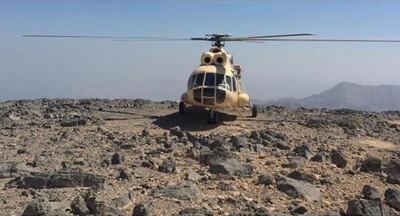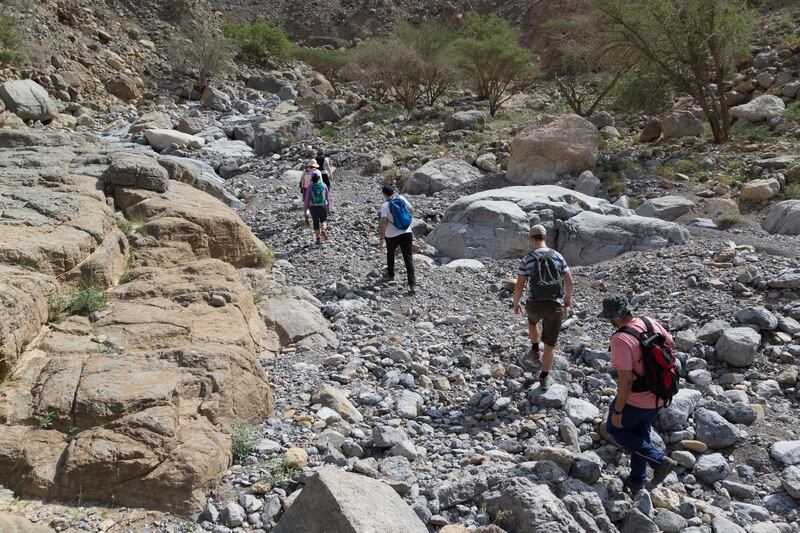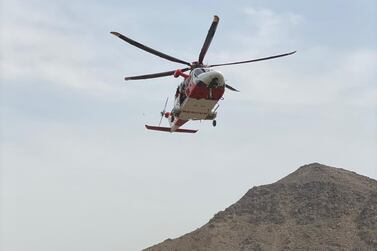Police and mountain rescue groups have reiterated safety warnings about hiking during the day.
Despite September ushering in slightly cooler weather, experts said the daytime heat is still fierce.
Complacent day-trippers still treat hiking like an easy walk and do not bring enough water, they said.
They are risking dehydration – and even death – by not being better prepared.
On Saturday, four hikers at Wadi Naqab in Ras Al Khaimah were flown to hospital by police.
“The ... teams managed to locate the tourists, provide them with the necessary first aid and then moved them to a less rugged area where the helicopter landed safely to transfer them to hospital,” said Maj Tariq Al Sharhan, head of the ambulance and rescue department at Ras Al Khaimah Police.
“We urge the public to avoid going to rugged areas in mountains and valleys, especially during the day.”
Ras Al Khaimah police said it had carried out 19 rescue missions of stranded hikers this year.

With more people staying in the country because of Covid-19, the mountains of the Northern Emirates are an attractive prospect.
But walking there can be dangerous. In May, three Emiratis were flown to safety after suffering from heat exhaustion while walking in Ras Al Khaimah.
The same month, Dubai resident Mohamad Hajjar, 35, from Lebanon, was found dead by search and rescue teams in the mountainous area of Sharjah’s Khor Fakkan.
Hiking experts said September still brings fierce summer heat and hikers must be cautious and prepared.
“Lots of people are tired of being stuck inside and have exhausted all of the options of pools and beaches – the mountains are the next logical outdoor activity,” said Amy Subaey, director of UAE Trekkers, a hiking company in Dubai.
“But it is still September and it’s really still extremely hot. A hike that you could normally do in four hours in the winter will take you six hours and leave you exhausted – and dehydrated,” she said.
Ms Subaey said that even if you are “gym” fit, hiking is a different activity that requires endurance an indoor workout cannot simulate.
“Getting stranded happens when people do not understand the risks they are taking by going hiking in the summer,” she said.
“They start out too late in the morning, take enough water for [only] a few hours and underestimate the time it will take them to get back to safety.
“They also think that help is just a phone call away and don’t understand that in some remote places in UAE, you cannot make that phone call.”
Ms Subaey said getting lost is also linked to dehydration, which affects the ability to think clearly.
“What happens next can be deadly, as heat exhaustion leads to heatstroke and death within hours. Hiking is not the same as ‘going for a walk’,” she said.
Ms Subaey advisers people to walk in groups, never hike with someone that does not know the route and always carry no less than five litres [of water].
“The only time that is acceptable to go hiking in September is from 5.15am to 9am,” she said.
Night hiking brings another set of risks. “Critters like snakes and spiders come out of their holes at night in the summer and you won’t be able to see them.
“If you are bitten by something in the mountains, that is not something that you can patch up with a Band-Aid.”
She suggested using the month of September to get “hiking fit”.
“Carry a 5kg backpack while walking, start running for longer durations and climbing stairs,” she said.
“Wake up at 3am and walk around the block with a 5kg backpack.”







